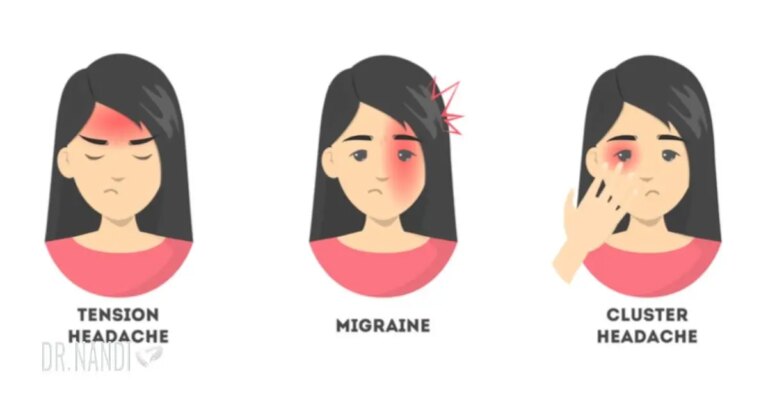The United States has colon cancer as the second leading cause of cancer death (7); it surpasses both prostate and breast cancer (1) in mortality rate among men and women. However, a simple screening test can prevent it entirely; it does not have to affect millions of people every year.
In this article, I’ll show you some facts about colon cancer and how to keep it from happening to you. It will help you understand why you should get screened for colon cancer.
I’ll also explain why screening is essential and not just for older people. I’ll tell you exactly who needs to get screened and what symptoms to look for.
Statistics and Facts About Colorectal Cancer
Here are some critical facts (2) concerning colorectal cancer:
- It affects both men and women of all ethnicities.
- It may be inherited.
- People with colon cancer may feel perfectly healthy.
- Colorectal cancer is one of the most preventable types of cancer.
- Colonoscopy is the most effective way of detecting colorectal cancer.
- All people at average risk should get a screening colonoscopy as soon as possible.
- Colorectal screening saves lives.
- Many Americans don’t get checked for colon cancer when they should, even though it could save their lives.
- Developing colorectal cancer may also be reduced by adopting good lifestyle choices.
What Are the Symptoms?
For the most part, there are no symptoms of early colorectal cancer. It is why screening tests are so necessary. When symptoms show up, cancer may have already spread to other parts of the body.
When symptoms do appear, they may include:
- Changes in bowel routines that last more than a few days, such as diarrhea or constipation
- Rectal bleeding or blood in the stool
- Persistent abdominal pain, cramping or bloating.
- Weakness and fatigue
- Unexplained weight loss
- Vomiting
Who Is at Risk?
The likelihood of getting colorectal cancer (1) rises with age. All men and women over 45 are at risk for colorectal cancer and should get checked. Those with an inflammatory bowel disease personal or family history, have had polyps removed, or have had colorectal cancer or polyps are also at risk of developing colorectal cancer.
More than any other racial and ethnic group in the United States, Alaskan natives have the highest mortality rate from colorectal cancer. Meanwhile, Blacks and Hispanics are more likely to be diagnosed with colorectal cancer later. The incidence of colorectal cancer in these groups has been increasing, with colorectal cancer incidence rising by 46% among African-American (3) men and 10% among African-American women.
In 2018, the American Society of Colon and Rectal Surgery and the American Cancer Society (4) recommended beginning screening at 45 for men and women of all races and ethnicities.
How to Reduce the Risk?
There are several things you could do to lower your risk of acquiring this disease, which include:
- Eating many fruits and vegetables, whole grains, lean proteins, and healthy fats.
- Avoid processed foods, red meat, fried food, and sugary drinks.
- Exercising regularly to strengthen the muscles and prevent weight gain and obesity.
- Drinking alcohol moderately.
- Quitting smoking.
- Knowing your family history.
- Getting regular screenings
How To Get Checked for Colorectal Cancer?
There are screening tests (5) that can detect colorectal cancer early when it’s most curable; these include:
Fecal Occult Blood
A test to check for hidden (occult) blood in the stool.
FIT/Stool DNA Testing
It looks for abnormal DNA in cells shed from the lining of the colon or rectum into the stool.
Flexible Sigmoidoscopy
Flexible Sigmoidoscopy (6) examines the rectum and lower section of the colon with a flexible, illuminated tube.
Double-Contrast Barium Enema (Barium X-Ray)
A series of x-rays of the rectum and entire colon.
Colonoscopy
An exam that uses a flexible, lighted tube to look inside the rectum and entire colon for polyps or cancer. The gold standard for colorectal cancer screening.
Digital Rectal Exam
A gloved, lubricated finger is put into the rectum by a doctor or other health care professional to check for lumps or anything else that seems abnormal.
Virtual Colonoscopy or CT Colonography
The virtual colonoscopy (5) test uses a CT scanner to make detailed cross-sectional images of the colon and rectum.
What Is a Colorectal Surgeon?
Colon and rectal surgeons are expert doctors who specialize in treating colon, anus, and rectum diseases. Their primary focus is to remove cancerous tissue before it spreads. Colon and rectal surgeons also perform routine screenings and surgeries to prevent disease.
Colorectal Cancer Screenings for People Over 75?
Medical experts recommend that screening continues until age 75; for those aged 76 to 85, screening is based on assessing their remaining life expectancy, physical symptoms, and prior screening findings.
Start transforming yourself into a healthier you. Get a FREE copy of my Superfood Cookbook.
References:
- Screening Tests to Detect Colorectal Cancer and Polyps – NCI
- 10 Facts About Colon Cancer | Blog | Loyola Medicine
- Colorectal Cancer — Cancer Stat Facts
- Facts about colon cancer & rectal cancer | Fight CRC (fightcolorectalcancer.org)
- Basic Facts About Colorectal Cancer | ASCRS (fascrs.org)
- The facts about colorectal polyps | Roswell Park Comprehensive Cancer Center – Buffalo, NY
- Cancer (who.int)



















